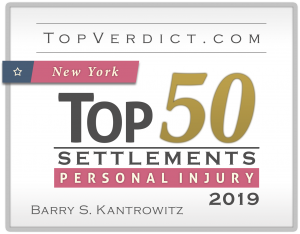The unexpected passing of a close family member can devastate an entire family. While the emotional toll is overwhelming, the unfortunate reality is that a death can have an enormous financial impact as well. The cost of a funeral or final medical expenses can be overwhelming. When your family faces the unexpected burden of funeral expenses or other costs related to the death of a loved one, it is only fair the person responsible for their death faces responsibility. A skilled New York and New Jersey wrongful death attorney is here to help.
Since 1975, Kantrowitz, Goldhamer, & Graifman, P.C. have served as vocal advocates for surviving relatives following an untimely death. If you have lost a loved one due to the conduct of another person, you should speak with a wrongful death attorney right away. Call us to schedule your free consultation. You may be entitled to substantial compensation if:
- Another person is responsible for the death of your loved one,
- The death resulted from the defendant’s wrongful conduct,
- The decedent could have pursued a negligence claim if they had survived,
- The decedent is survived by heirs, and
- There are damages recoverable under the law
Below, we discuss the elements of a wrongful death claim and how to establish them at trial.
Death and wrongful conduct
Not every passing of a loved one will result in a potential wrongful death claim. To pursue a wrongful death claim, the decedent’s estate must show that another person is responsible for the death. What’s more, the death must have resulted from wrongful conduct. Wrongful conduct can include acts of negligence, recklessness, or even intentional criminal acts.
The basis for a negligence claim
Ultimately, the idea behind a wrongful death claim is that it allows the estate of a deceased person to pursue damages that would have been available in a negligence claim had the decedent survived. These claims exist, given that a deceased person may not bring a negligence lawsuit. Without a wrongful death claim, the negligent party would benefit from the death of the person they hurt by avoiding any financial responsibility they would have faced had the person lived.
Survived by heirs
A wrongful death claim is only viable if the decedent was survived by heirs that would benefit from a successful claim. While the point of these claims is to hold the responsible person or entity accountable, it also serves the purpose of compensating the deceased person’s heirs for their end-of-life expenses. If there are no heirs set to inherit, a wrongful death claim cannot succeed.
Damages
Finally, a wrongful death lawsuit must establish damages that the estate could recover. These damages may include the final arrangements for the deceased, including the cost of their funeral, cremation, or burial.
However, a plaintiff may also seek damages related to the deceased person’s final injury or illness. If the decedent received medical treatment prior to death, the estate may seek compensation for those expenses from the negligent party. Damages may also include the pain and suffering the decedent experienced prior to their death.
Discuss your options with a New York & New Jersey wrongful death lawyer
When you lose a loved one due to the wrongful act of another person, you have the right to recover under a wrongful death claim. However, the process of recovering from a claim is not simple. In fact, only the deceased’s estate has the right to pursue a claim. With that in mind, it is crucial to have your own wrongful death attorney to ensure your rights are protected.
For years, KGG attorneys have proudly fought for the legal rights of the surviving families in wrongful death cases. A compassionate wrongful death attorney from our firm can help ensure your rights are protected during this difficult time. Reach out right away to schedule a free consultation.






